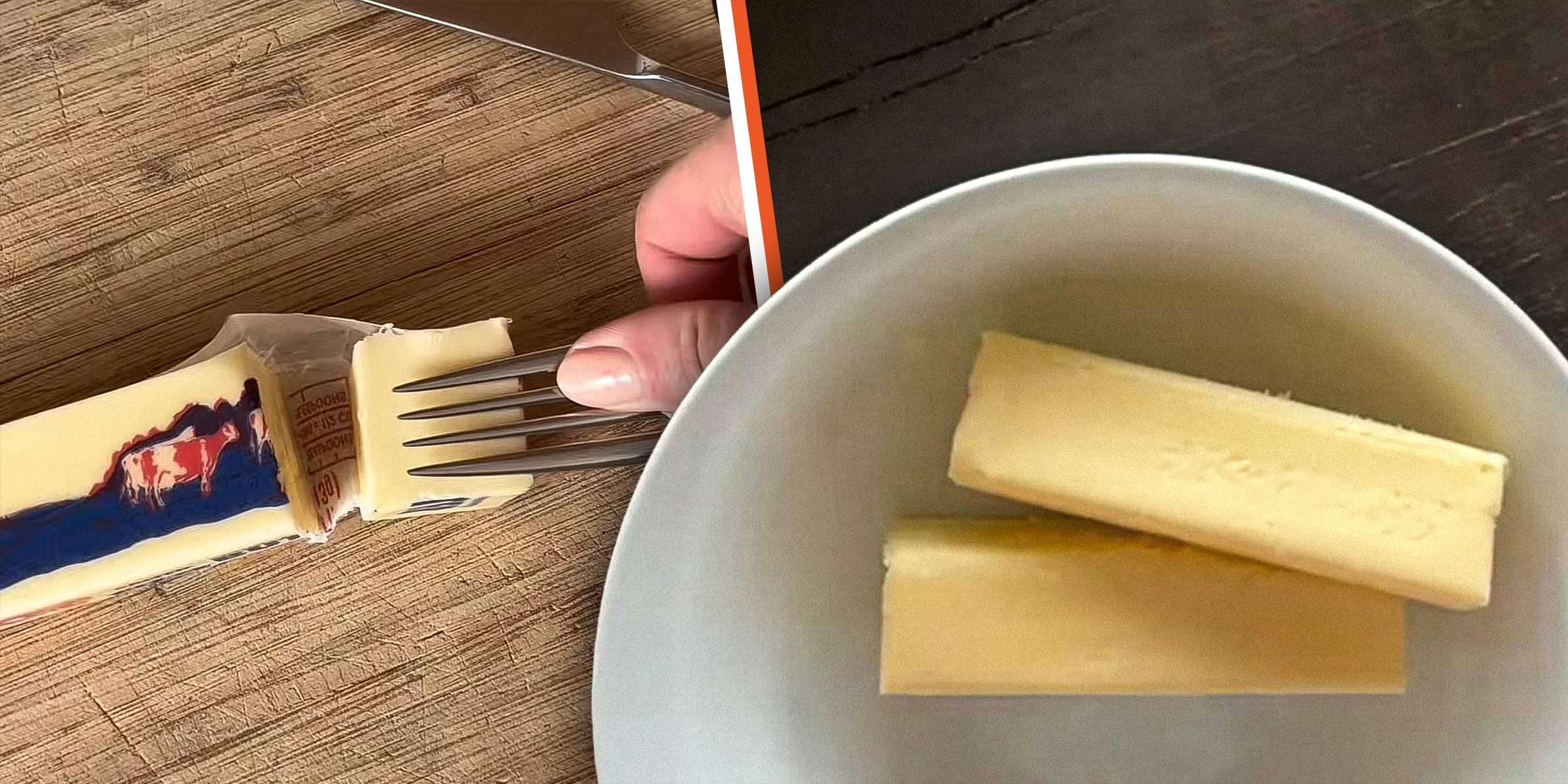
Popular Butter Brand Recalled as FDA Issues Its Official Classification
A popular butter brand has been pulled from shelves in seven states following a contamination alert, the latest in a string of food recalls that have unsettled consumers this year.
News of a popular butter brand being recalled has left many consumers both concerned and fed up, especially as food safety issues seem to be popping up more frequently. The US Food and Drug Administration's (FDA) official classification only added fuel to the fire, sparking a flood of reactions online.

A fan reacts to the news that a popular butter brand was recalled, from a post dated April 9, 2025 | Source: Facebook/WFSB3
In a recent announcement, the FDA issued a recall for Cabot Creamery's 8oz Extra Creamy Premium Butter, Sea Salted, after elevated levels of coliform contamination were detected.
Coliform bacteria are naturally found in the environment, including in soil, vegetation, and the intestines of animals and humans.
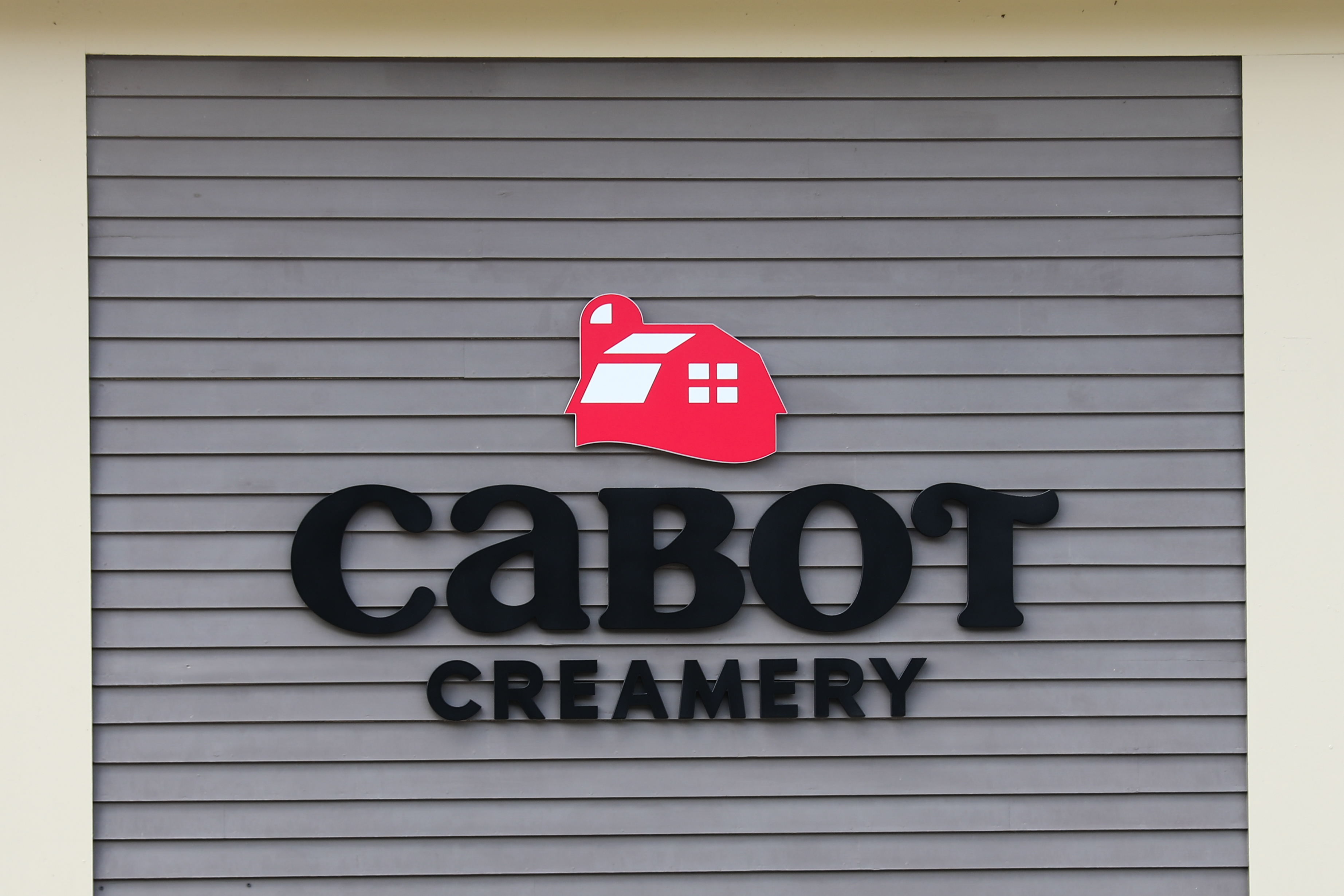
Cabot Creamery logo as seen on a store in Waterbury, on June 19, 2023 | Source: Getty Images
While their presence doesn't always signal a health risk, certain types, like fecal coliforms, are more concerning, as they typically originate from the digestive systems of warm-blooded animals and may indicate possible contamination from fecal matter.
The product with coliform contamination, which comes in two 4oz sticks packaged in cardboard shells, is being recalled voluntarily by the manufacturer, Agri-Mark Inc., after safety concerns arose.
This recall is classified as Class III, the FDA's lowest category, indicating that while the product does not pose a significant risk to health, it still does not meet food safety standards.
The recall affects a limited quantity of the butter, with 189 cases equaling 1,701 pounds distributed across several states, including Vermont, New York, Pennsylvania, Maine, Connecticut, New Hampshire, and Arkansas.
The specific product being recalled bears the lot number 090925-055 and a best-by date of September 9, 2025, with the UPC code 0 78354 62038 0.
Agri-Mark clarified that just 17 packages, amounting to 8.5 pounds, of the affected butter made it to store shelves, all within Vermont. The company emphasized that 99.5% of the contaminated product was successfully recovered before it could reach consumers, limiting the potential spread.
They also confirmed that no complaints or illnesses have been reported in connection with the butter so far. Still, a Cabot Creamery official has urged consumers who may have purchased the affected butter to check the product's details and discard any remaining stock.
While this recall does not appear to have led to widespread illness, it's a precautionary step to ensure consumer safety. "We're committed to the highest standards of quality and food safety, and we're taking every step necessary to ensure our products meet those standards," the official added.
As news of the recall reached the public, many were quick to express their frustration that their health and safety were not being prioritized.
One person asked, "What is going on with food. There seems to be a never ending onslaught of recalls." Another individual didn't mince words, writing, "That's gross." This feeling was a recurring theme, with one commenter dropping, "Disgusting."
For others, the news was just plain shocking. One person exclaimed, "Unbelievable." Another person echoed similar concerns, "Personally not a fan of this butter. I stopped purchasing it years ago because it was rancid and stale on more than one occasion."
Someone else chimed in, "That is why I make my own!" And one individual, clearly over the wave of such news, said with exasperation, "Whatever. !! Why all of a sudden everything is contaminated with something."
As the recall continues to stir debate, it's clear many consumers are growing increasingly wary of what's landing on their grocery shelves with the number of product recalls rising.
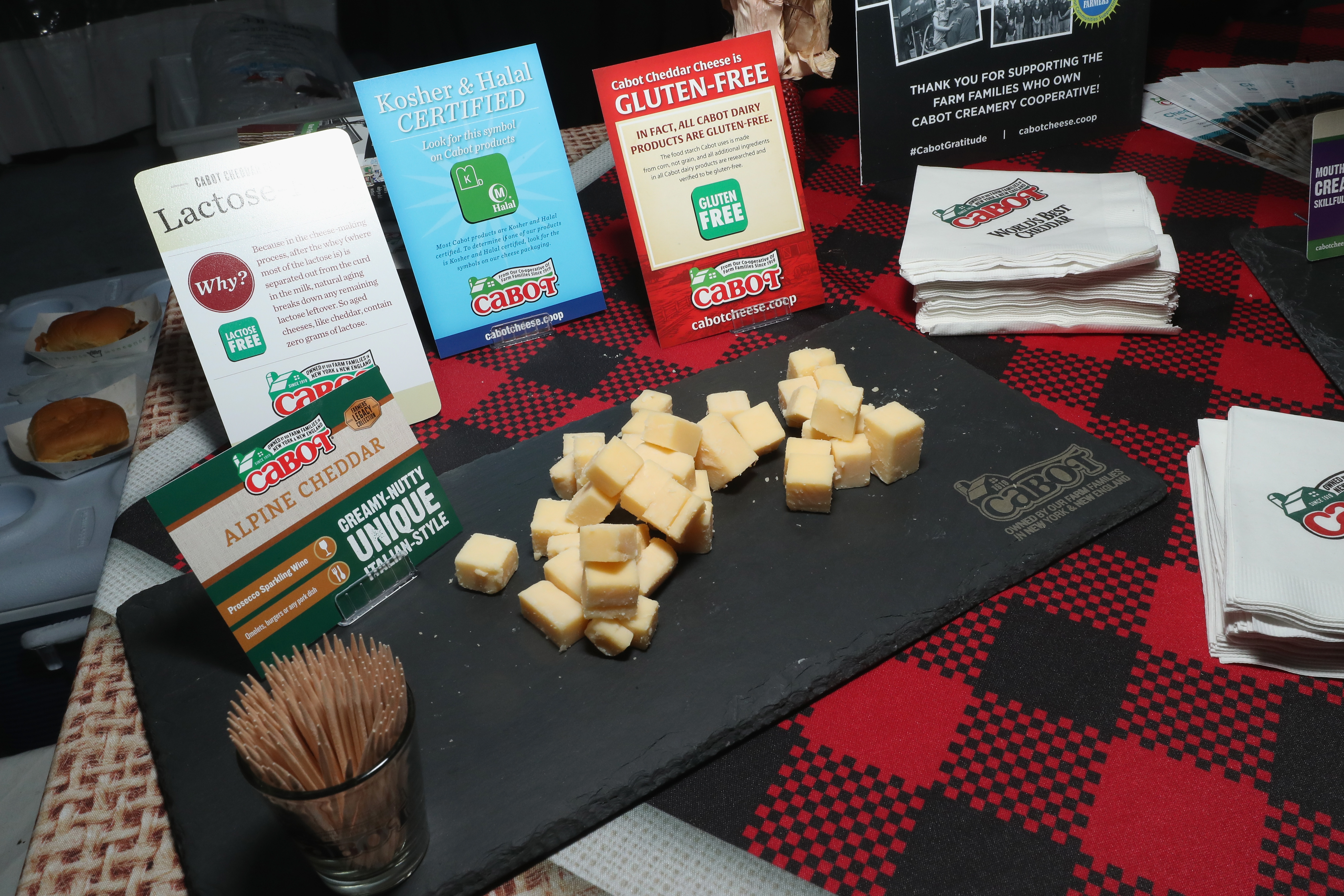
Cheese available for guests to try at the Cabot Creamery booth during the Blue Moon Burger Bash hosted by Rachael Ray at the Food Network & Cooking Channel's New York City Wine & Food Festival, presented by Coca-Cola at Pier 92 in New York City, on October 14, 2016 | Source: Getty Images
On March 26, 2025, Frito-Lay also announced a voluntary recall affecting a limited number of its Tostitos Cantina Traditional Yellow Corn Tortilla Chips after it was discovered that some bags may contain nacho cheese-flavored chips.
The unexpected mix-up could pose a serious health risk to individuals with a milk allergy, as the nacho cheese variety contains milk that is not declared on the packaging.
The recall, also reported by the FDA on March 27, 2025, specifically involved 13 oz. bags of the Tostitos Cantina Traditional Yellow Corn Tortilla Chips bearing a Guaranteed Fresh Date of May 20, 2025, which appears on the front of the packaging.
Affected products also carry specific manufacturing codes that help identify the recalled items. Consumers may have purchased these bags starting as early as March 7, 2025.
Less than 1,300 bags were impacted by the recall. While the quantity may be small, the potential danger for people with milk allergies or severe sensitivities is significant.
According to food safety guidelines, unreported allergens like milk can lead to severe or even life-threatening allergic reactions.
The distribution of the recalled product spanned a range of retailers—including grocery stores, drugstores, convenience outlets, and online sellers—across 13 states.
These include Alabama, Florida, Georgia, Illinois, Indiana, Kentucky, Mississippi, North Carolina, Ohio, South Carolina, Tennessee, Virginia, and West Virginia.
No illnesses or allergic reactions had been reported in connection with the affected product at the time of the recall. Frito-Lay had also confirmed that no other Tostitos products, flavors, sizes, or variety packs were involved.
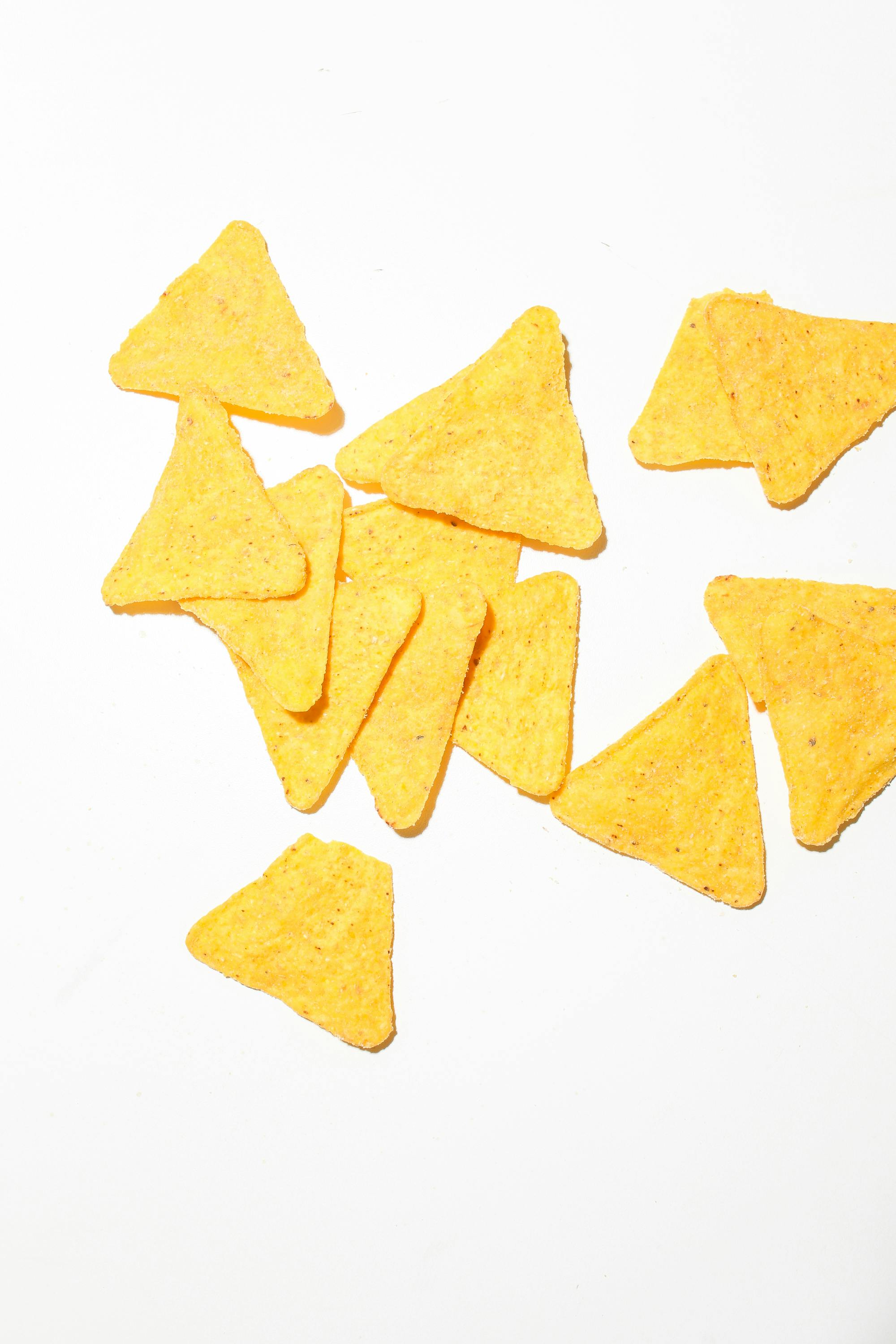
Corn chips | Source: Pexels
According to food safety standards, undeclared allergens remain one of the leading causes of food recalls in the US, with milk, peanuts, tree nuts, soybeans, wheat, shellfish, eggs, and fish accounting for 90 percent of allergic reactions.
Though not all sensitivities are classified as allergies, ingredients such as monosodium glutamate (MSG), sulfites, gluten, and artificial dyes like FD&C Yellow 5 (Tartrazine) can also trigger reactions in sensitive individuals.

A hand reaching into a bowl of corn chips | Source: Pexels
Consumers who have purchased the affected Tostitos product are advised to check the guaranteed fresh date and manufacturing codes and to avoid consumption if there's any possibility of cross-contamination. Anyone with concerns should reach out to Frito-Lay directly for further guidance or to inquire about refunds.
For those with food allergies or caring for someone who does, even a small labeling oversight can carry major risks—making recalls like this an important reminder to double-check packaging and stay alert to updates from manufacturers.
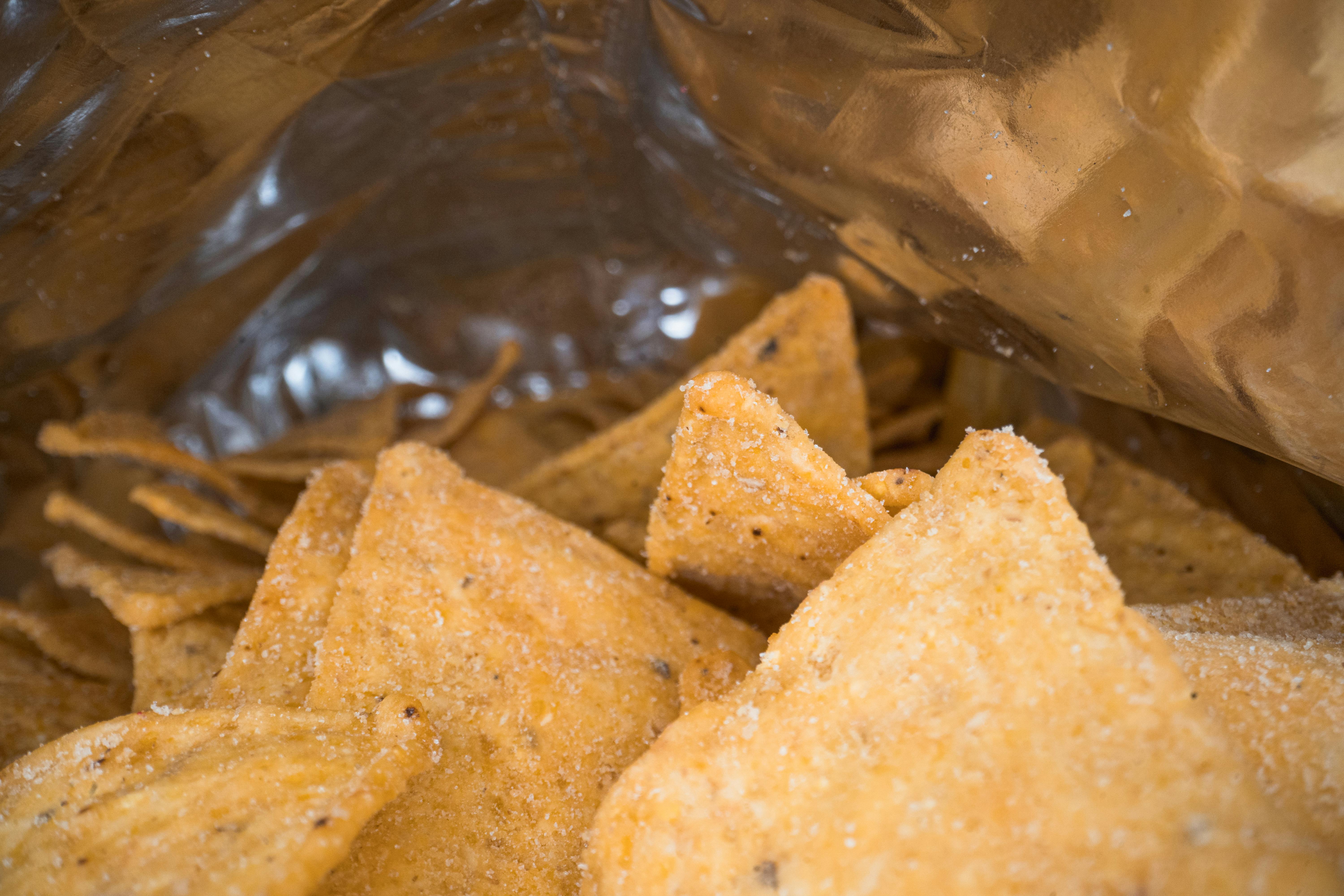
Inside a bag of corn chips | Source: Pexels
This incident is part of a trend of food recalls in recent months. Tony's Chocolonely Inc., a New York-based company, had also announced a voluntary recall of specific chocolate bars sold throughout the US.
The recall, made public on April 1, 2025 and published by the FDA on April 2, 2025, concerns two products: the Tony's Chocolonely Dark Chocolate Almond Sea Salt Bar and the Tony's Chocolonely Everything Bar. Both bars weigh 180 grams, or 6.35 ounces.
The reason for the recall was the possible presence of small stones in the chocolate, which were not filtered out during a third-party almond harvesting and processing procedure.
The company received 12 reports from consumers who found small stones in the affected products. All of the complaints were made outside the US and Canada. No injuries had been reported.
The recalled bars were distributed nationwide. They were available for purchase in retail stores across the US as well as online at the company's website, www.tonyschocolonely.com. Distribution of the affected products took place between February 7 and March 24, 2025.
The affected Tony's Chocolonely Everything Bar includes four specific lot codes: 4327, 4330, 4331, and M4331. Lot 4327 has a best-before date of November 22, 2025.
Lot 4330 has a best-before date of November 25, 2025. Lot 4331 and M4331 both have best-before dates of November 26, 2025. The Universal Product Code (UPC) for lots 4327, 4330, and 4331 is 850011828564, while the UPC for lot M4331 is 850032676441.
The affected Tony's Chocolonely Dark Chocolate Almond Sea Salt Bar includes three lot codes: 163094, 162634, and M162634.
Lot 163094 has a best-before date of April 2, 2026. Lots 162634 and M162634 both have best-before dates of February 28, 2026. The UPC for lots 163094 and 162634 is 858010005641, while the UPC for lot M162634 is 850011828908.
Consumers who have purchased any of the affected products and have not yet consumed them are advised not to eat the chocolate. Instead, they should return the product to the place of purchase for a refund or replacement, or dispose of the product safely.
Tony's Chocolonely has provided detailed instructions for identifying the correct lot codes and how to submit a refund or replacement request on their website.
Consumers can visit https://us.tonyschocolonely.com/pages/recall-fo-intl-0325 for further guidance. The company clarified that no other lot codes are included in this recall, and no other Tony's Chocolonely products are affected.
On February 7, 2025, yet another recall was issued. The recall was on several brands of canned tuna sold at major retailers, including Costco and Walmart, were recalled due to a manufacturing defect that could lead to contamination with a potentially deadly toxin.
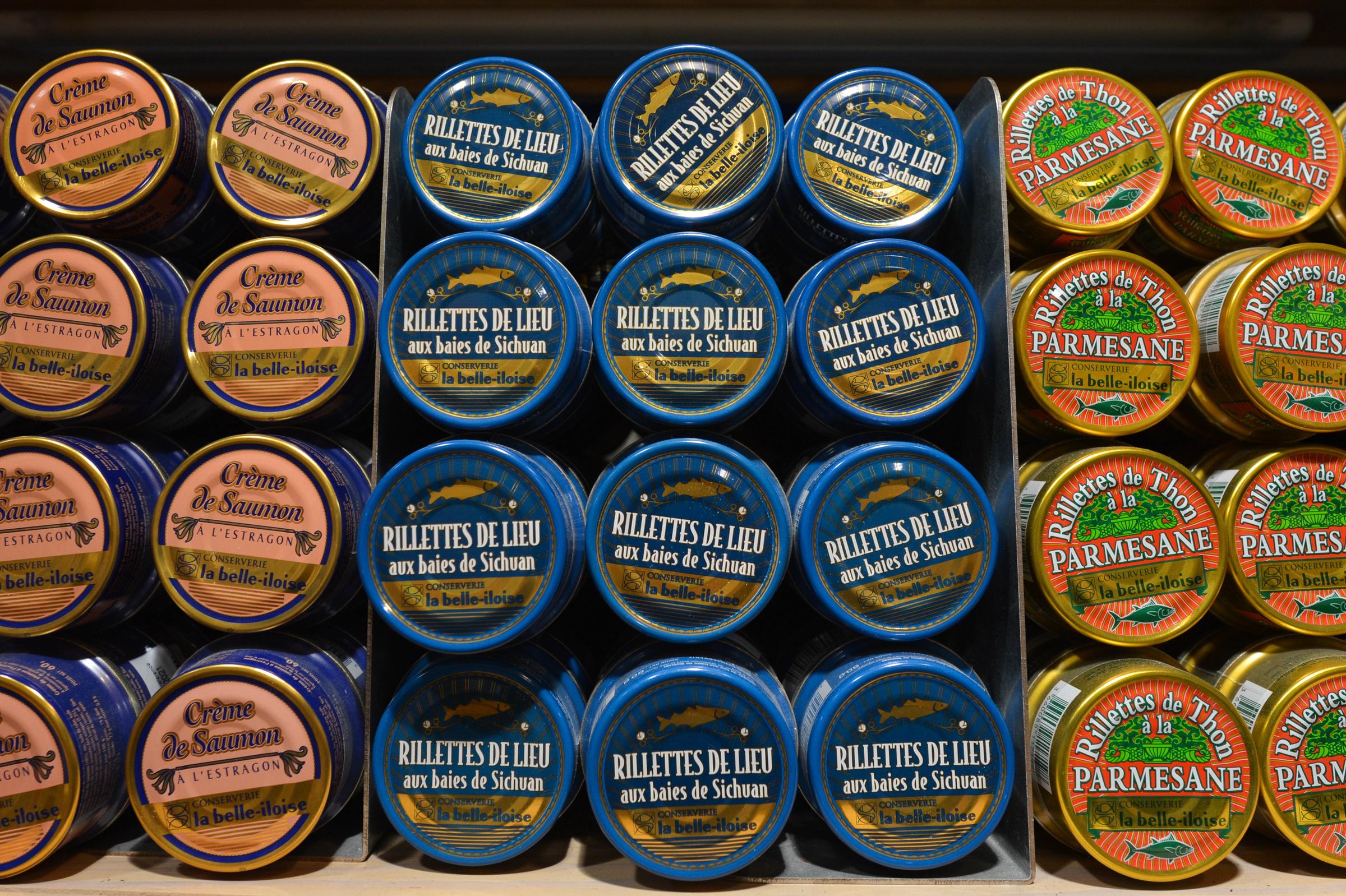
A shop shelf with canned fish in Ouistreham, Normandy, France, on December 28, 2018 | Source: Getty Images
Tri-Union Seafoods announced the voluntary recall of select canned tuna products sold under the Genova®, Van Camp’s®, H-E-B, and Trader Joe’s brands.
The recall followed concerns that a defect in the “easy open” pull-tab lid could compromise the seal, potentially leading to leaks. In a worst-case scenario, the defect could cause contamination with clostridium botulinum, a "potentially fatal" bacteria that can lead to severe food poisoning.
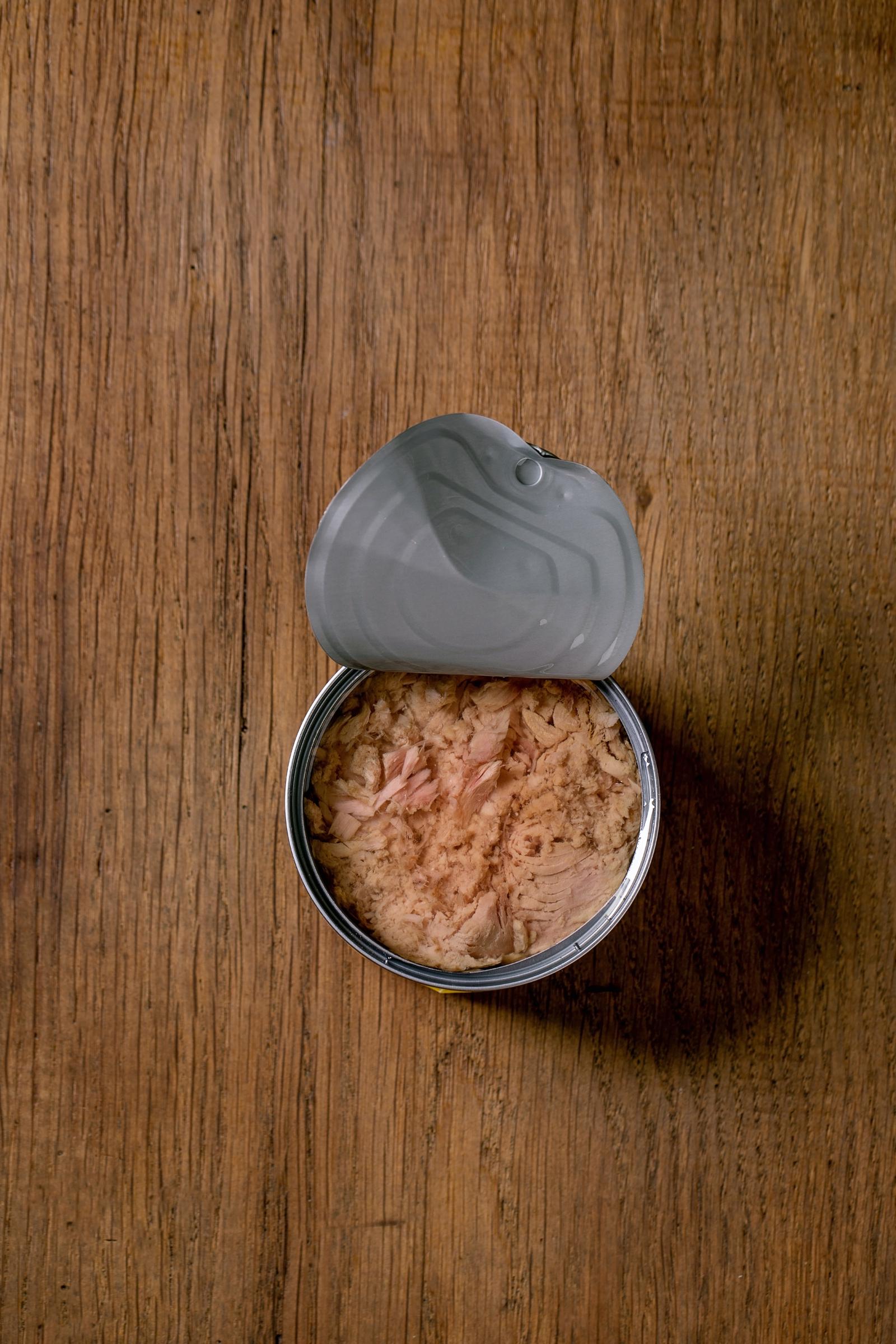
Canned tuna fish in oil | Source: Getty Images
While no illnesses were reported, the company urged consumers to discard the affected cans if they already bought them. They also beseeched those who used products from the tuna cans to seek medical attention if they experienced any foodborne illness symptoms.
Symptoms typically develop within 12 to 36 hours but can appear as early as 4 hours or up to 8 days after exposure. Although rare, botulism has a high mortality rate if not treated quickly with antitoxin and respiratory support, with fatality occurring in five to 10 percent of cases.
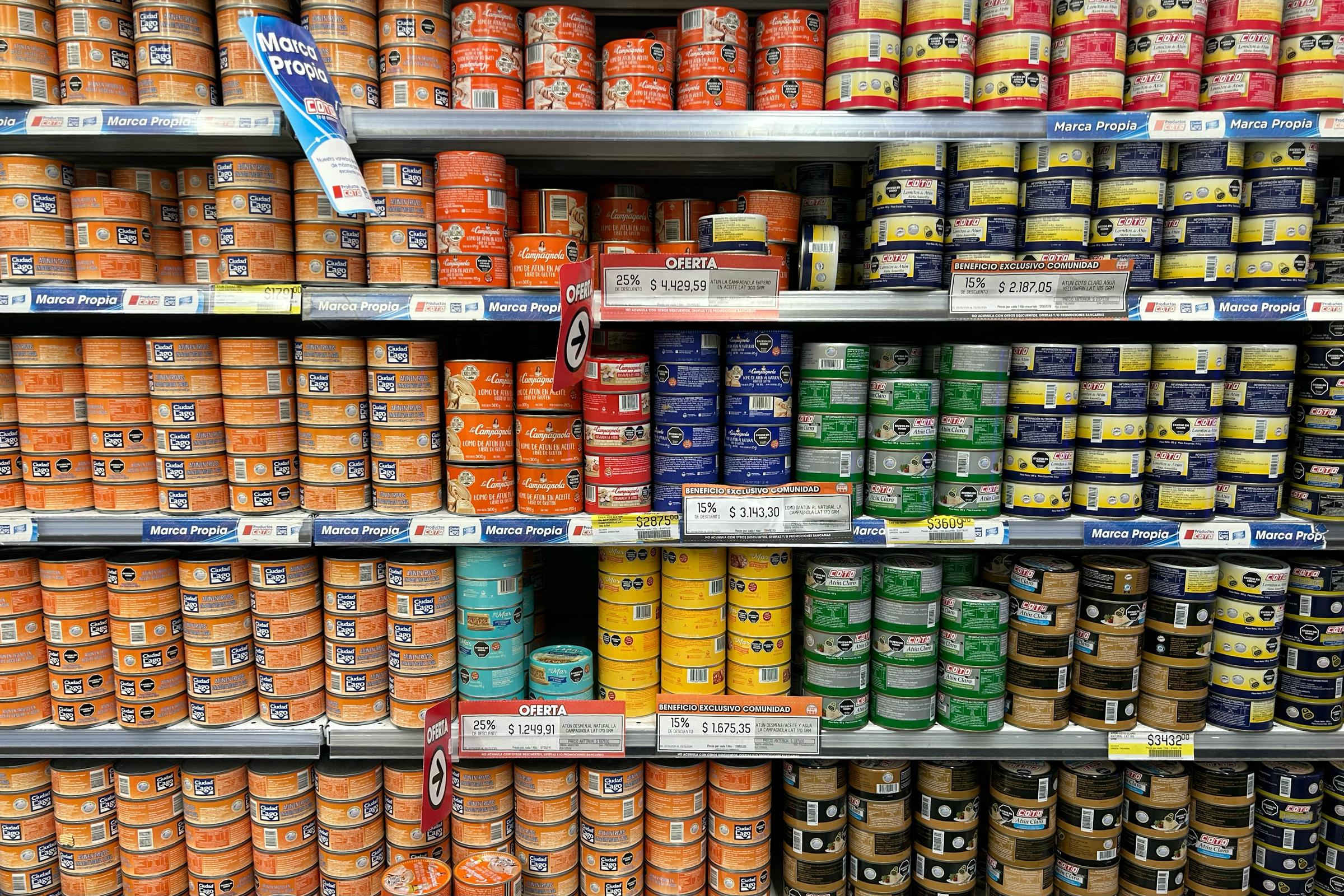
Tuna cans on sale are seen at a supermarket in Buenos Aires, on May 23, 2024 | Source: Getty Images
Symptoms one may exhibit when contaminated with the bacteria include fatigue, constipation, weakness, diarrhea, vertigo, and abdominal swelling. Others are dry mouth and trouble swallowing or speaking.
Furthermore, as the condition worsens, muscle weakness can spread from the neck and arms to the respiratory system and lower body. As per the World Health Organization, these symptoms are not caused by the bacterium itself, but by the toxin produced by the bacterium.
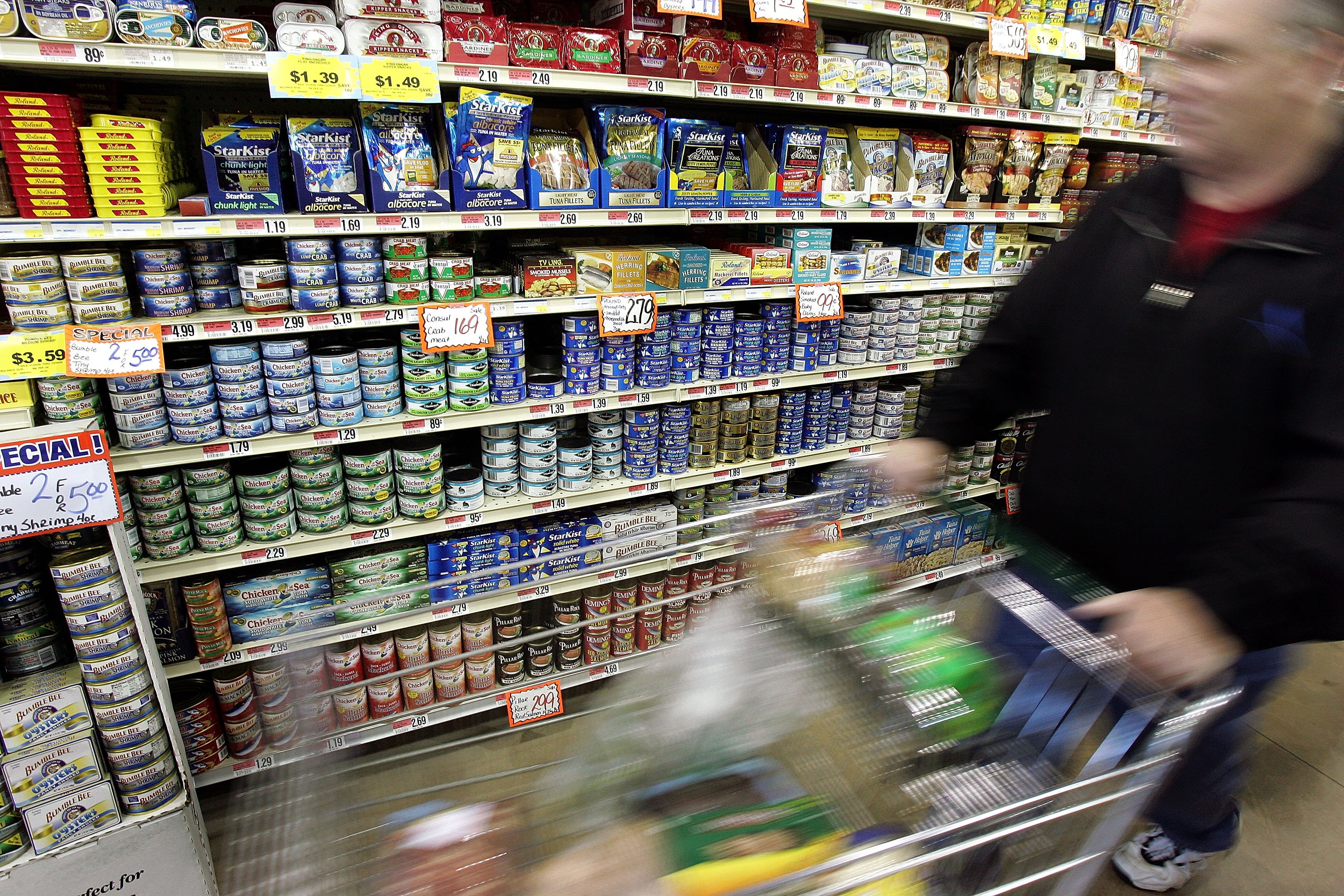
A shopper walks by cans of tuna fish on display in a grocery store in Des Plaines, Illinois, on January 27, 2006 | Source: Getty Images
The recalled tuna products were distributed across various retailers, including H-E-B in Texas, and Trader Joe’s in multiple states, including Delaware, Illinois, Indiana, Iowa, Kansas, Kentucky, Maryland, Michigan, Minnesota, Missouri, Nebraska, New Jersey, New York, North Carolina, Ohio, Pennsylvania, Virginia, Washington D.C., and Wisconsin.
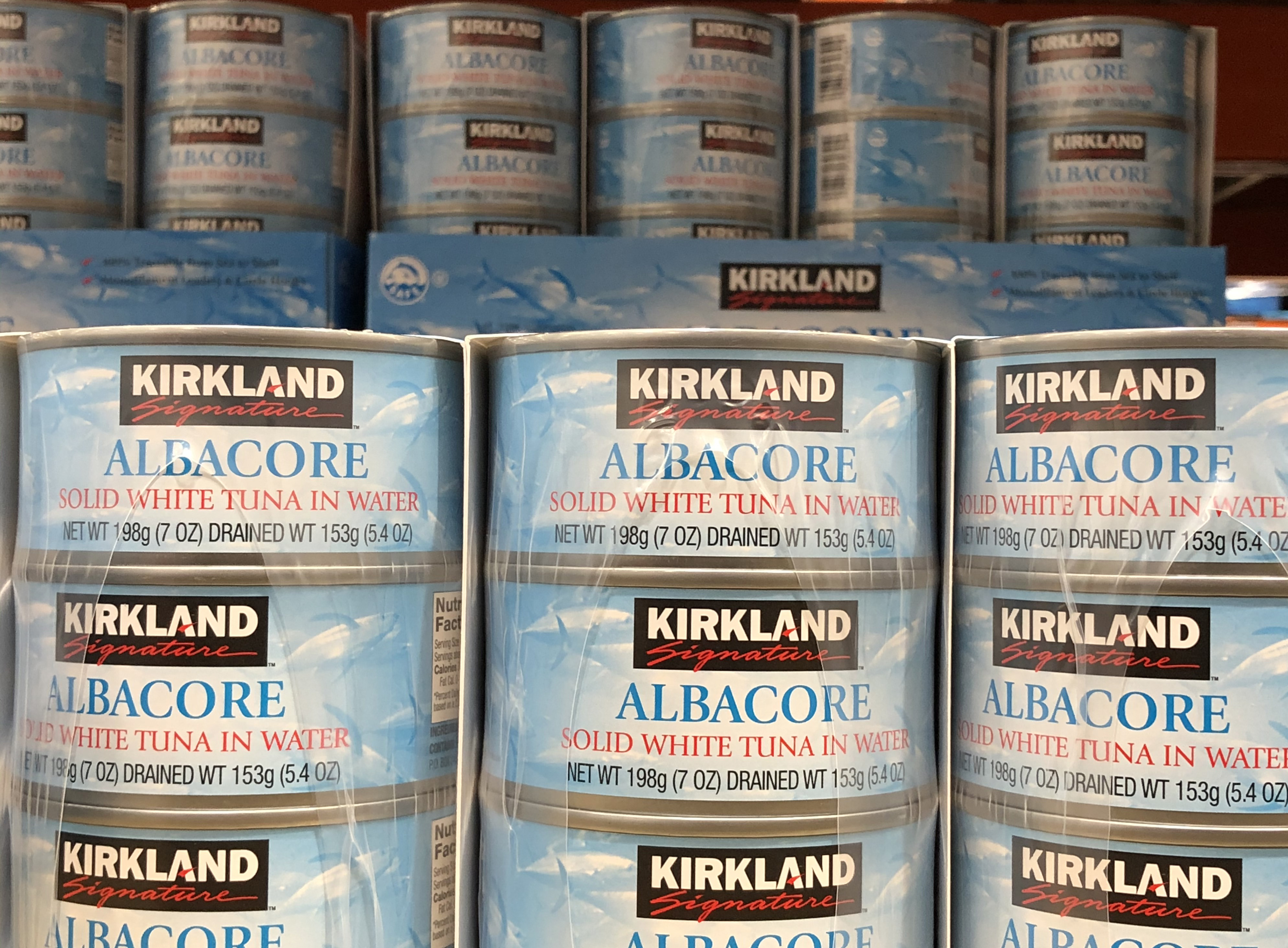
Cans of Kirkland brand albacore tuna are displayed at a Costco store in Novato, California, on December 12, 2019 | Source: Getty Images
Genova 7 oz tuna cans were distributed in Costco in Florida and Georgia. Meanwhile, Genova 5 oz brands were sold at Harris Teeter, Publix, H-E-B, Kroger, Safeway, Walmart, and independent retailers in Alabama, Arkansas, Arizona, California, Florida, Georgia, North Carolina, New Jersey, Tennessee, and Texas.
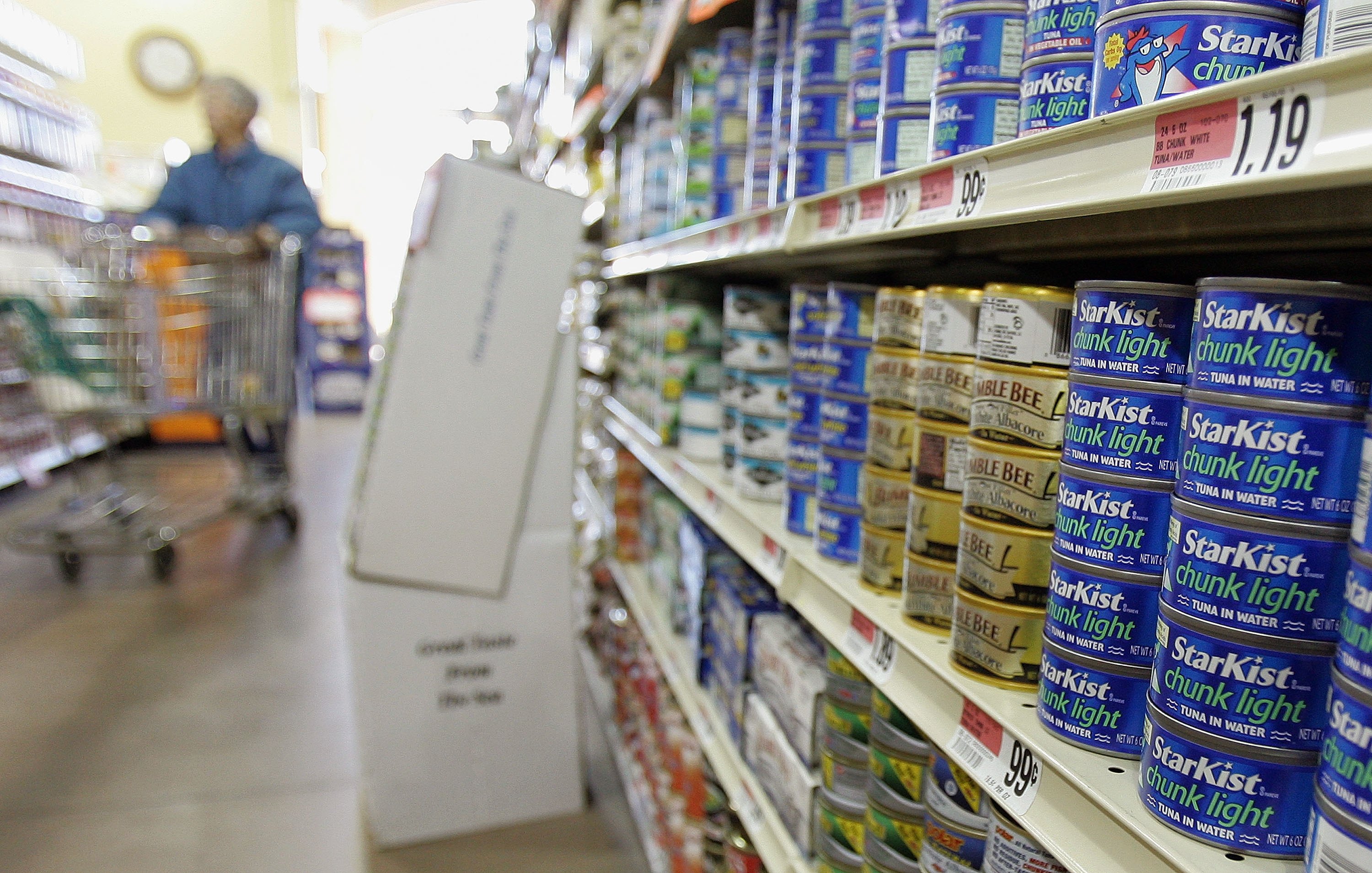
Cans of tuna fish are displayed in a grocery store in Des Plaines, Illinois, on January 27, 2006 | Source: Getty Images
Other affected brands were Van Camp's, which were sold at major chains like Walmart and independent retailers in Pennsylvania, Florida, and New Jersey. Consumers and retailers were advised to check specific can codes and Best if Used By dates indicated on the bottom of the cans, and UPC numbers listed on the FDA website.
The information in this article is not intended or implied to be a substitute for professional medical advice, diagnosis or treatment. All content, including text, and images contained on news.AmoMama.com, or available through news.AmoMama.com is for general information purposes only. news.AmoMama.com does not take responsibility for any action taken as a result of reading this article. Before undertaking any course of treatment please consult with your healthcare provider.
